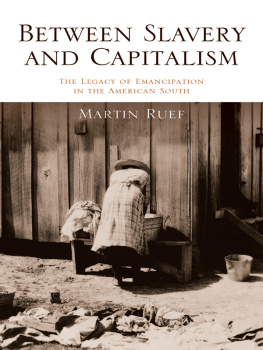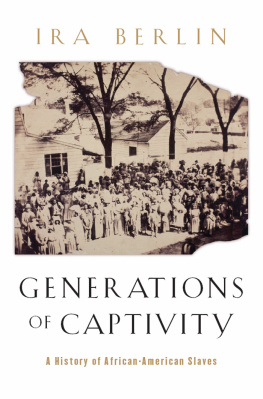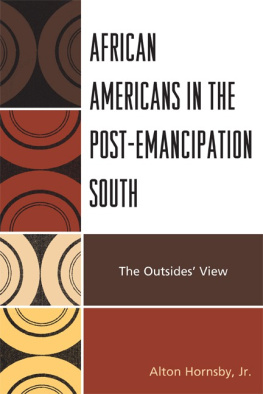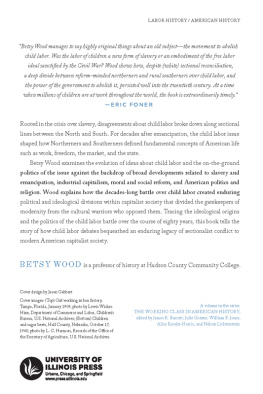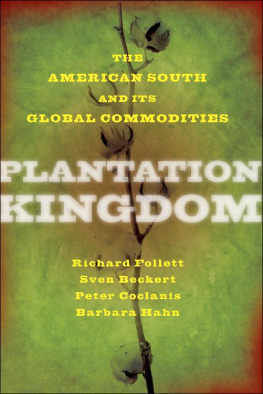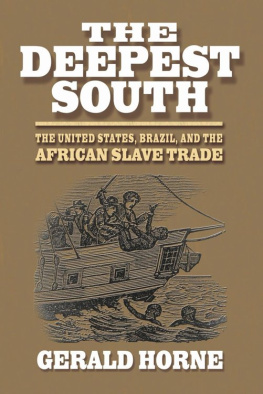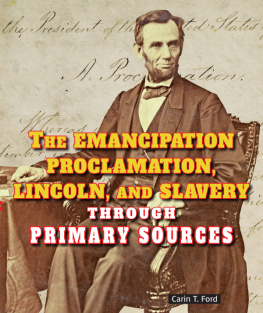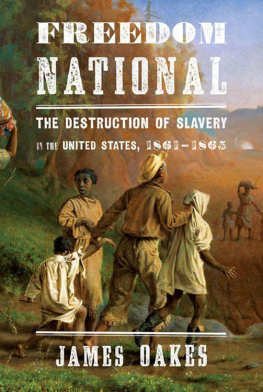
Between Slavery and Capitalism
Between Slavery and Capitalism
THE LEGACY OF EMANCIPATION IN THE AMERICAN SOUTH
Martin Ruef
PRINCETON UNIVERSITY PRESS
Princeton and Oxford
Copyright 2014 by Princeton University Press
Published by Princeton University Press, 41 William Street, Princeton, New Jersey 08540
In the United Kingdom: Princeton University Press, 6 Oxford Street, Woodstock, Oxfordshire OX20 1TW
press.princeton.edu
Jacket Photograph: View of a woman washing clothes, from the Federal Writers Project, ca. 19371938. Library of Congress, Prints and Photographs Division, LC-USz62-125152.
All Rights Reserved
ISBN 9780-691162775
Library of Congress Control Number: 2014935569
British Library Cataloging-in-Publication Data is available
This book has been composed in Sabon Next
Printed on acid-free paper
Printed in the United States of America
10 9 8 7 6 5 4 3 2 1
Contents
List of Illustrations
List of Tables
Preface
On December 31, 1862, our Nation marked the end of another year of civil war. At Shiloh and Seven Pines, Harpers Ferry and Antietam, brother had fought against brother. Sister had fought against sister. Slavery still suspended the possibility of an America where life and liberty were the birthright of all, not the province of some. Yet, even in those dark days, light persisted. Hope endured. As the weariness of an old year gave way to the promise of a new one, President Abraham Lincoln issued the Emancipation Proclamation today, it is a legacy we choose not only to remember, but also to make our own.
President Barack Obama, December 31, 2012, the 150th anniversary of the Emancipation Proclamation
Barack Obama, the first black president of the United States, observed the sesquicentennial of Lincolns proclamation by issuing a release through the White House press secretary. In contrast to earlier events, such as a viewing of the Emancipation Proclamation in the Oval Office with African American seniors and their grandchildren on January 10, 2010, there was no public ceremony nor much effort to draw attention to the anniversary. The event received some coverage from the black press, but went largely unnoticed by the national media.
Dedicated poll watchers are unlikely to be surprised by such political ambivalence. Over the past twenty years, surveys of representative swaths of the American population have revealed a considerable amount of quiet uncertainty and division about the role of the Civil War in ending slavery, the responsibility of the U.S. government to the descendants of slaves, and the
In a poll conducted by the ABC News Nightline program fourteen years earlier, respondents were asked to reflect on the possibility that the federal government might offer a formal apology or reparations to black Americans with slave ancestors. Among American adults as a whole, nearly 38 percent thought that the government should apologize for slavery, while 54 percent believed that it should not. Considering the possibility of monetary compensation, 19 percent thought the government should pay reparations to slave descendants, while 75 percent believed it should not. Differences of opinion were especially pronounced across race and party lines. Among black respondents, 80 percent believed that an apology and/or reparations were needed. Among white Democrats, the percentage favoring an apology was 35 percent, while the percentage favoring reparations fell to 12 percent. Only meager numbers of white Republicans (24 percent and 7 percent, respectively) supported these federal actions to make amends to African Americans for the ills of slavery.
Debates regarding the legacy of slavery continue in judicial battles over affirmative action, in claims regarding African American culture and family life, around monuments and flags dedicated to the Southern Confederacy, and in the way that black bondage and its effects are portrayed in popular culture. One more example serves to illustrate how divisive and persistent these issues can be. Until a vote by South Carolinas state legislature in May 2000, the Confederate battle flag flew above the state capitol in Columbia, along with the Palmetto state flag and the U.S. stars and stripes. In a national poll conducted in April of that year, respondents were asked whether the flag was a symbol of slavery that should be removed, or an aspect of Southern heritage that should remain. In all, 45 percent of those polled believed that the flag should be removed, while 42 percent thought that it should stay above the capitol dome. A small percentage of respondents (1 percent) volunteered that a compromise could be reached by moving the flag to a different location. The state legislature soon adopted the compromise solution, lowering the flag over the Capitol and raising a similar flag at the Confederate Soldier Monument on the grounds of the State House. Mirroring the schism in public opinion polls, the resolution seemed to satisfy no one, neither the NAACP, which had catalyzed the vote through boycotts and rallies, nor Southern heritage groups, which opposed the removal
In academic circles, the usual bromide for such dissensus involves a call for greater historical literacy, supported by earnest efforts to make the fruits of scholarship accessible to a wider audience. The problem with this solution, in the case of slavery and emancipation, is that academic consensus itself is lacking. Discussion and surveys among historians and social scientists reveal fundamental disagreement on many of the effects of emancipation. In the mid-1990s, the historian Robert Whaples distributed a survey to 178 randomly selected members of the Economic History Association. Asked whether American blacks [had] achieved substantial economic gains during the half-century after 1865, 37 percent of all respondents voiced agreement, 27 percent agreed only with provisos, and 36 percent voiced disagreement. On the question of whether the system of sharecropping impeded economic growth in the postbellum South, 36 percent agreed, 21 percent agreed only with provisos, and 43 percent disagreed. A lack of consensus among scholars was also evident for numerous other factual questions regarding the period after slavery, ranging from the convergence of Southern economic development with that of the U.S. North to the efficiency of cotton monocropping to the impact of postbellum merchant monopolies on poor white and black farmers. Differences in opinion between scholars holding a Ph.D. in history (or currently teaching in a history department) and those holding a Ph.D. in economics (or currently teaching in an economics department) were especially stark.
When considering legal prescriptions regarding issues such as reparations, the scholarly view seems equally muddled. In a review of work on the topic, John Torpey and Maxine Burkett acknowledge that there is little consensus about the cause of action for which reparations are sought, whether for [antebellum] slavery or for [postbellum] segregation, or about the appropriate remedies. While demands for government intervention have existed since the end of the Civil War, reparation lawsuits have not fared well in court, owing to technical reasons ranging from the statute of limitations and sovereign immunity to a lack of plaintiff standing and difficulty in establishing causation.
Why does there continue to be so much public and scholarly discord about the aftermath of the Civil Warperhaps more than any other event in American history? How we answer this question undoubtedly has something to do with our conceptions of race, something to do with our conceptions of economics, and something to do with our conceptions of sectional disparities between North and South. The point of departure for this text, however, is that uncertainty tends to be an inherent feature of profound institutional transformation, especially one as dramatic as that confronted by the United States between the bookends of the Civil War and Radical Reconstruction. The uncertainty is rooted in the construction of new social categoriesof freedmen and women where there had been slaves, of sharecropping and tenancy where there had been plantations, of the progressive rhetoric of a New South where there had been a planter aristocracy. It is rooted in a change in economic institutions, in the difficulty of reconciling differences between slavery and capitalism. And it is rooted equally in the question of continuity, the tendency of mechanisms of identity and inequality to reproduce themselves across economic systems, despite superficial change. Before grappling with the political divisions and diversity of opinions that confront us today, it is necessary to examine the uncertainty of emancipation in its own time.
Next page
